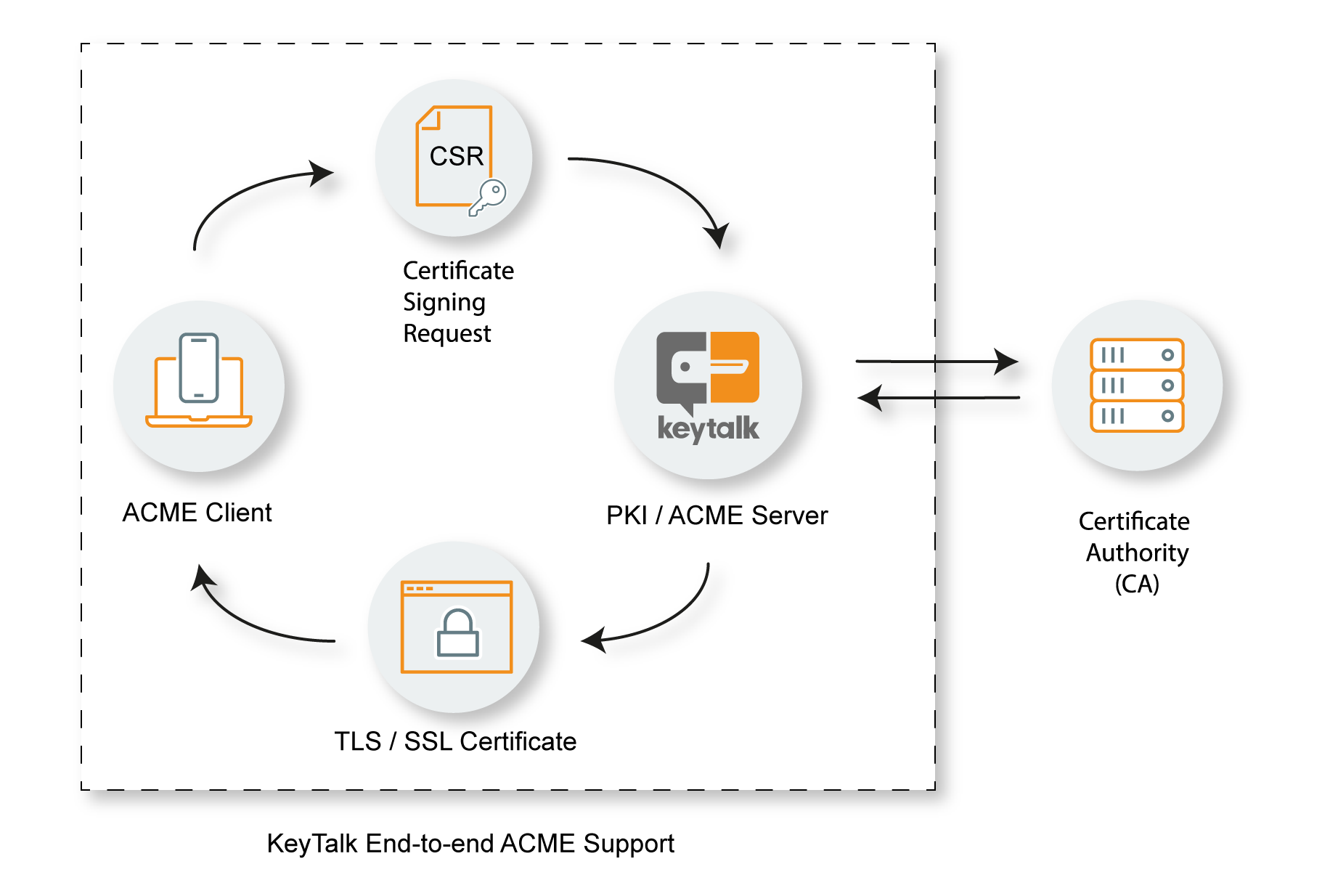Why “ACME Support” Is Not All the Same — How KeyTalk Makes the Difference
In the world of certificate lifecycle management (CLM), many vendors proudly claim “ACME support” as part of their automation story.
At first glance, that sounds great — after all, ACME (Automatic Certificate Management Environment) is the open standard that enables automatic issuance and renewal of TLS/SSL certificates.
But what most organizations discover quickly is that “ACME support” doesn’t mean the same thing everywhere.
Where Most Vendors Stop
When you look closer at ACME implementations from certificate authorities and CLM vendors such as DigiCert, Sectigo, Venafi, Keyfactor, or AppViewX, you’ll notice a common pattern:
They all provide an ACME server.
That’s the issuing side — the endpoint that responds to ACME clients when they request a certificate.
The client side, however — where the real operational challenges live — is left to the customer.
Since most ACME clients (like Certbot, acme.sh, or win-acme) are open-source, organizations are expected to handle:
In practice, that means customers are on their own when things don’t work — and with today’s diverse IT environments, that’s often.
Where KeyTalk Steps In
At KeyTalk, we believe true automation means supporting both sides of ACME — not just the issuing server, but also the customer’s integration process.
Our support doesn’t stop at providing a compliant ACME endpoint. It starts where most others stop.
We help customers configure and deploy open-source ACME clients such as Certbot on a wide variety of operating systems — from Linux (RHEL, Ubuntu, Debian) to Windows and macOS.
We assist in:
Certain enterprise environments — for example, where ACME clients must enroll certificates via NDES and Microsoft AD CS — face an architectural limitation:
Standard ACME clients always want to install their own unique private key on the endpoint, which breaks centralized key management.
This is where KeyTalk CKMS takes over.
Using KeyTalk Agents (available per OS), organizations can:
KeyTalk’s support team goes beyond “best effort.”
We stay involved until the automation setup — whether ACME-based or agent-based — is running flawlessly in your environment.
That includes:
When we say “we support ACME,” we mean end-to-end, not “server-only.”
In Summary
| Aspect | Most Vendors | KeyTalk |
| ACME Server (issuing side) | ✅ Provided | ✅ Provided |
| ACME Client (customer side) | ❌ Unsupported | ✅ Fully supported |
| Troubleshooting & OS-specific guidance | ❌ Not offered | ✅ Included |
| Alternative to ACME when required | ❌ None | ✅ KeyTalk Agent-based automation |
| Goal | Issue certificates | Ensure full automation works in practice |
Conclusion
ACME has become the global standard for certificate automation — but automation without support isn’t automation.
With KeyTalk CKMS, organizations get the best of both worlds:
At KeyTalk, we don’t stop when the certificate is issued — we stop when your automation works.
Do you have questions about this article or how KeyTalk CKMS helps you ease with the management and automation of digital certificates? Our support team is available 24/7 to assist and guide you in implementing a fully automated PKI architecture via e-mail or our contact page.
The KeyTalk Team
